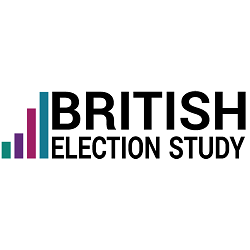The British Election Study is pleased to announce the release of the 2017 election waves of the British Election Study Internet Panel. This major release of new data consists of three new waves of our internet panel (waves 11, 12, and 13), and an accompanying 2017 election results and contextual data file.
Wave 11 of the British Election Study Internet Panel was conducted by YouGov between 24th April 2017 (six days after the election was called) and 3rd May 2017. 31,014 respondents took wave 11 of the British Election Study. 21,990 of these also took wave 10, an overall wave on wave retention rate of 70.9%. You can download the standalone wave 11 data here.
Wave 12 was conducted by YouGov between 5th May 2017 and 7th June 2017, as a daily rolling campaign wave, in which a randomly selected subset of the panel was surveyed on each day of the election campaign, from the day following the 2017 local elections until the day before the 2017 general election. 34,464 respondents took wave 12, an average of 1,014 respondents on each day of the survey. 25,395 of these also took wave 11, an overall wave on wave retention rate of 81.9%. You can download the standalone wave 12 data here.
Wave 13, the 2017 post-election wave, was conducted by YouGov between 9th June 2017 and 23rd June 2017. 31,196 respondents took wave 13 of the British Election Study. 26,669 of these also took wave 12, an overall wave on wave retention rate of 77.4%. 24,473 wave 11 respondents took wave13, and wave on wave retention rate of 78.9%. 21,558 respondents took all three of waves 11, 12, and 13, a retention rate of 69.5%. You can download the standalone wave 13 data here.
A cumulative file of all 13 waves of the internet panel can be downloaded here. Please note that from this release onward we have made a slight change to the way the internet panel data is released. Due to the increasingly large file size that results from a 13 wave panel study, we have removed the open ended text response data from the main panel file. This data is still available, but we are releasing it as a standalone file (that can be linked to the main panel file using the id variable). The open ended response data file can be downloaded here.
Alongside the new waves of the panel data we are also releasing our 2017 General Election results file. Because the boundaries are unchanged since the 2015 (and 2010) election, the 2017 results file is an update of our previous results file, adding in the 2017 election results and candidate information. In the results file we also include constituency estimates of the results of the 2016 EU referendum generated by Chris Hanretty. We are grateful to Chris for making this data publicly available and for his permission to include the data in our results file. The Stata and SPSS versions of the results file, and the accompanying documentation, can be downloaded here and an excel file version can be downloaded here.
A snap election and a snap election study
The calling of a snap election presents a considerable challenge to the fielding of an election study, which in normal circumstances is the product of many months of preparation. Following the 2016 EU referendum we put in place contingency plans in case of an early election which allowed us to move quickly to design and field three waves of the internet panel and a face-to-face survey in an incredibly short space of time. We are grateful to the Economic and Social Research Council for agreeing additional funding at short notice.
Findings from the 2017 Election BES Internet Panel
To accompany the release of the data we will be publishing a number of blog posts highlighting interesting findings from our new data in the coming days. The blogs will be listed below as they appear:
- Ed Fieldhouse and Chris Prosser examine the effect of Brexit on the election and what changed during the campaign.
- Chris Prosser and Ed Fieldhouse look at the election in Scotland and show how the interaction of two referendums – on Scottish independence and the EU – help explain electoral changes in Scotland
- Chris Prosser examines what voters said about the changing issue agenda over the election campaign and what changed people’s minds about the parties during the campaign.
- Jon Mellon and Chris Prosser test the theory that people voted for Labour because they thought they couldn’t win (and find no evidence to support the idea)

